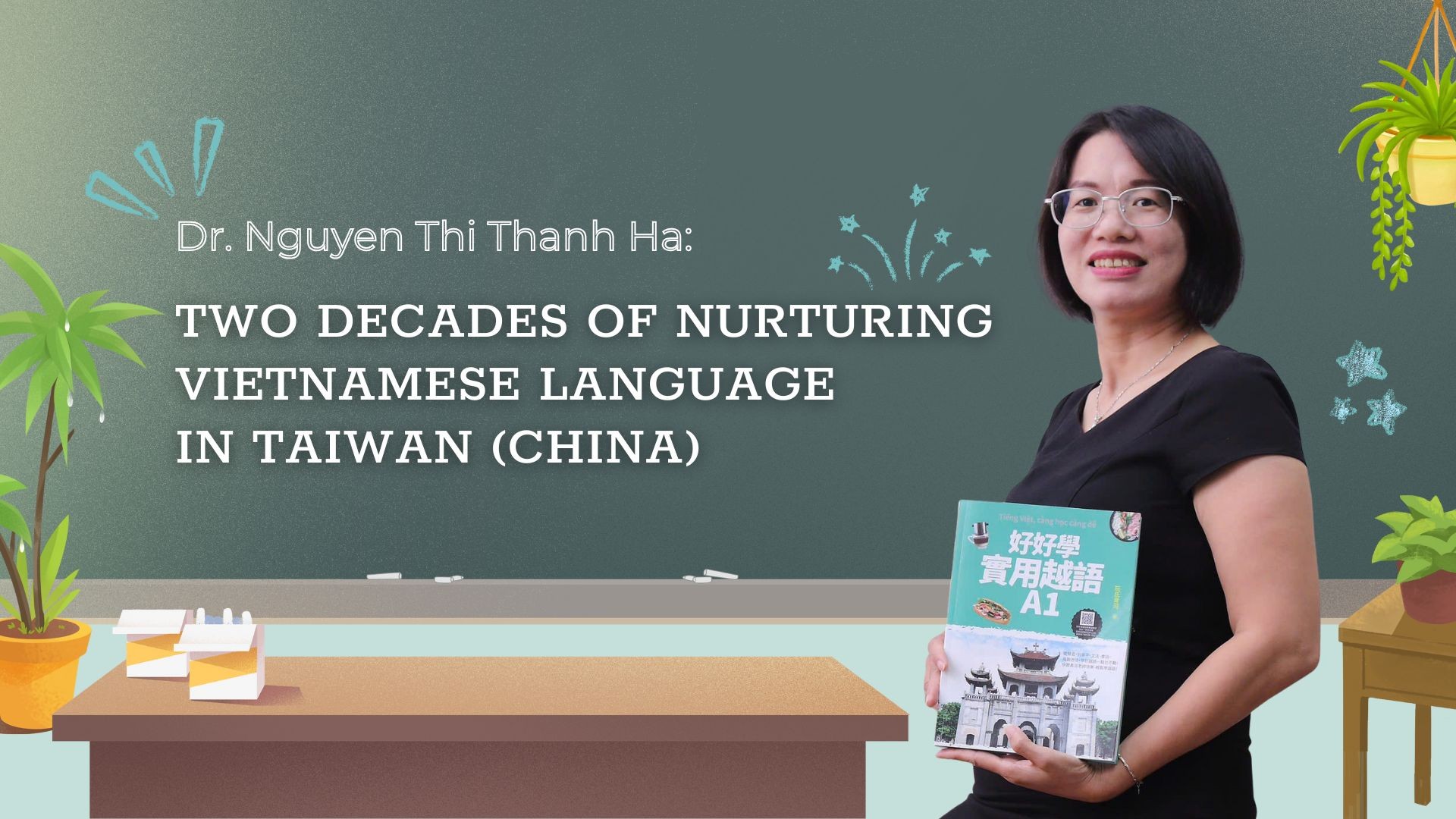 |
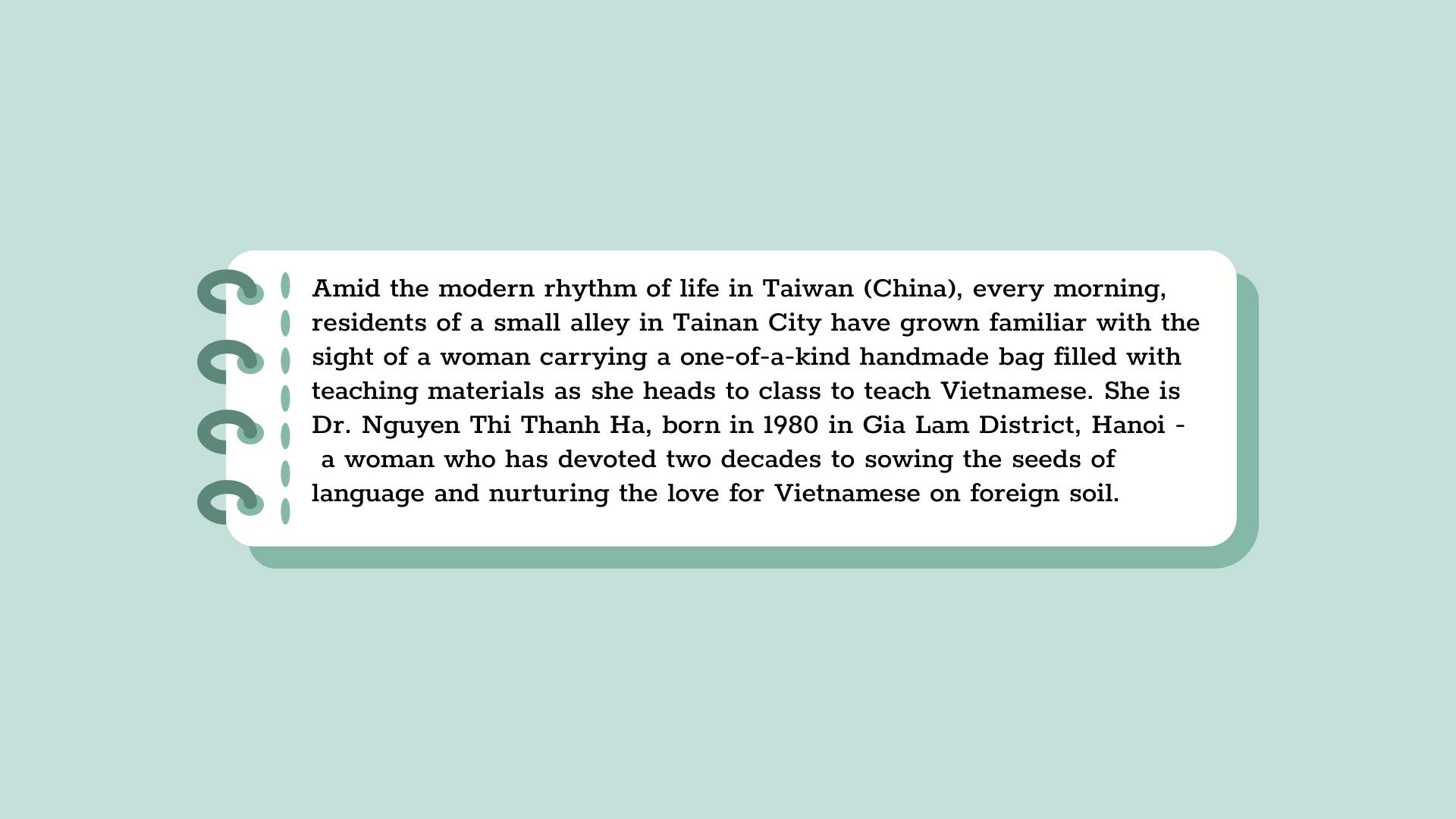 |
 |
| In 2002, leaving behind her French degree and youthful ambitions, Nguyễn Thị Thanh Hà departed her homeland for Taiwan to work as a laborer at a semiconductor manufacturing company in Kaohsiung City. Three years later, she married a kind-hearted Taiwanese man and temporarily set aside her career to raise their two young children. Yet, during that period, her thirst for knowledge continued to grow. With encouragement from her husband and family, she decided to pursue a master’s degree in History at National Cheng Kung University (Tainan) - a turning point that marked the beginning of her two-decade-long journey in education. |
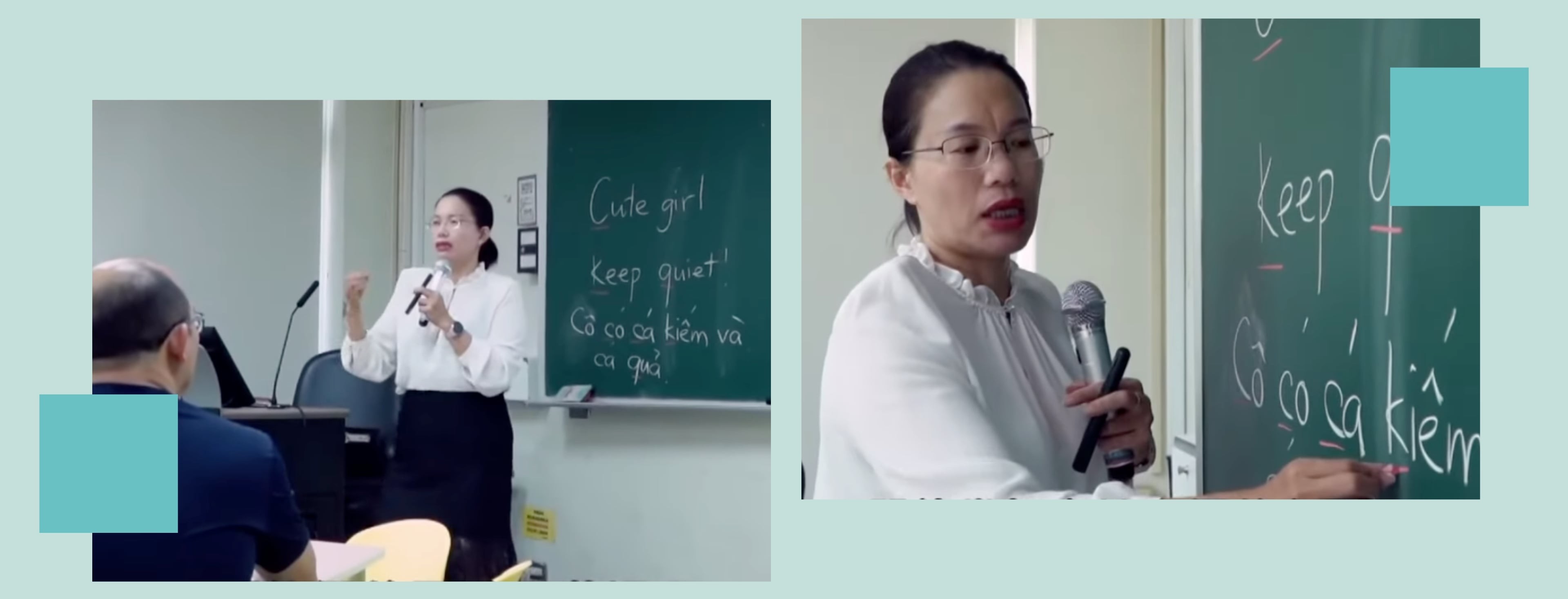 |
| Dr. Nguyen Thi Thanh Ha has devoted two decades to teaching the Vietnamese language in Taiwan. |
|
In 2011, Ha officially became a Vietnamese language lecturer at Pingtung University of Science and Technology. At that time, Vietnamese was still relatively new in Taiwan - it was taught mainly on a small scale, with fragmented materials and no unified curriculum. By 2015, as the Taiwanese government launched its “New Southbound Policy,” the demand for learning Vietnamese surged to support cooperation with Southeast Asian countries. However, the teaching and learning of the language remained inconsistent: each school and teacher followed their own methods, leading to discrepancies in student assessment. Faced with this reality, Taiwan’s Ministry of Education decided to compile a standardized Vietnamese language curriculum for primary and lower secondary levels and invited Nguyen Thi Thanh Ha to join the academic content review council. Over many months of continuous work, she and other experts carefully examined every lesson, grammatical structure, and dialogue to ensure that the textbooks were not only linguistically accurate but also culturally authentic and suitable for Taiwanese students’ ways of thinking. |
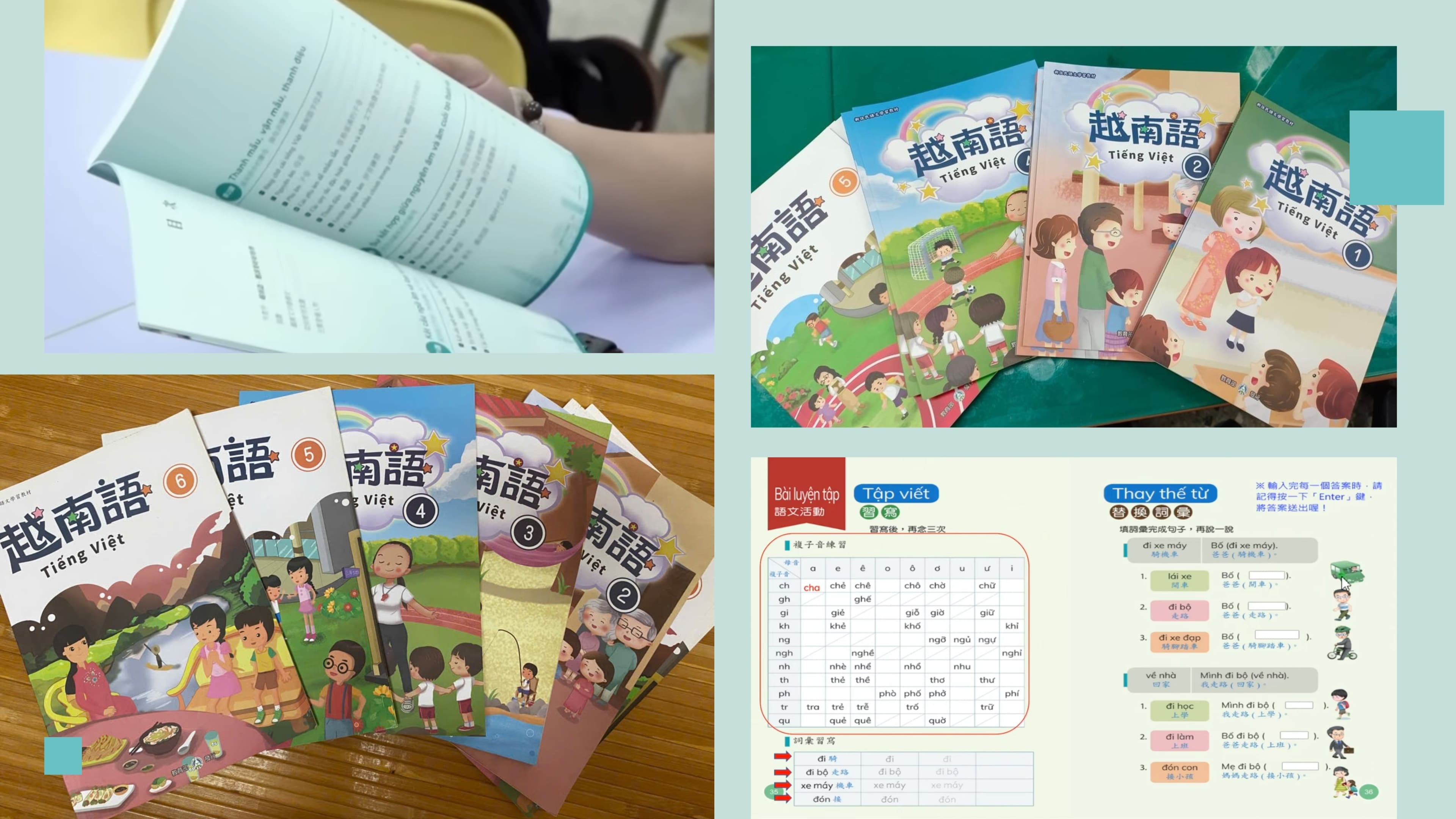 |
| Dr. Nguyen Thi Thanh Ha served on the review council for Taiwan’s unified Vietnamese language curriculum for primary and lower secondary schools. |
| The 18-volume series, covering grades 1 through 9, is regarded as the first systematic and standardized Vietnamese language curriculum in Taiwan. It paved the way for thousands of Taiwanese students to study Vietnamese in a structured manner. From that point on, Vietnamese officially secured its place in Taiwan’s education system - no longer an “exceptional subject,” but a language of communication, integration, and cultural heritage. |
 |
|
After working with Taiwan’s Ministry of Education to complete the unified Vietnamese language curriculum for primary and lower secondary levels, Ha considered it only the first step in the long journey of the Vietnamese language in Taiwan. The textbook series provided school students with a solid foundation for structured learning, but through her teaching experience at universities and language centers, she soon recognized a significant gap: university students, working adults, and multicultural families seeking to learn Vietnamese still lacked suitable learning materials. Most existing textbooks were developed from an academic perspective, heavily theoretical and not truly aligned with the mindset or phonetics of Mandarin speakers. For that reason, Ha decided to create her own series of books, both to experiment with more flexible teaching methods and to help learners realize that Vietnamese is not difficult, and can even become “easier the more they learn.” Thus, in 2017, the book series Vietnamese Gets Easier the More You Learn was born, featuring engaging designs, a strong focus on communicative contexts, and an emphasis on Vietnamese cultural behavior. It helps learners not only speak correctly but also speak naturally, with the authentic “soul” of Vietnamese. |
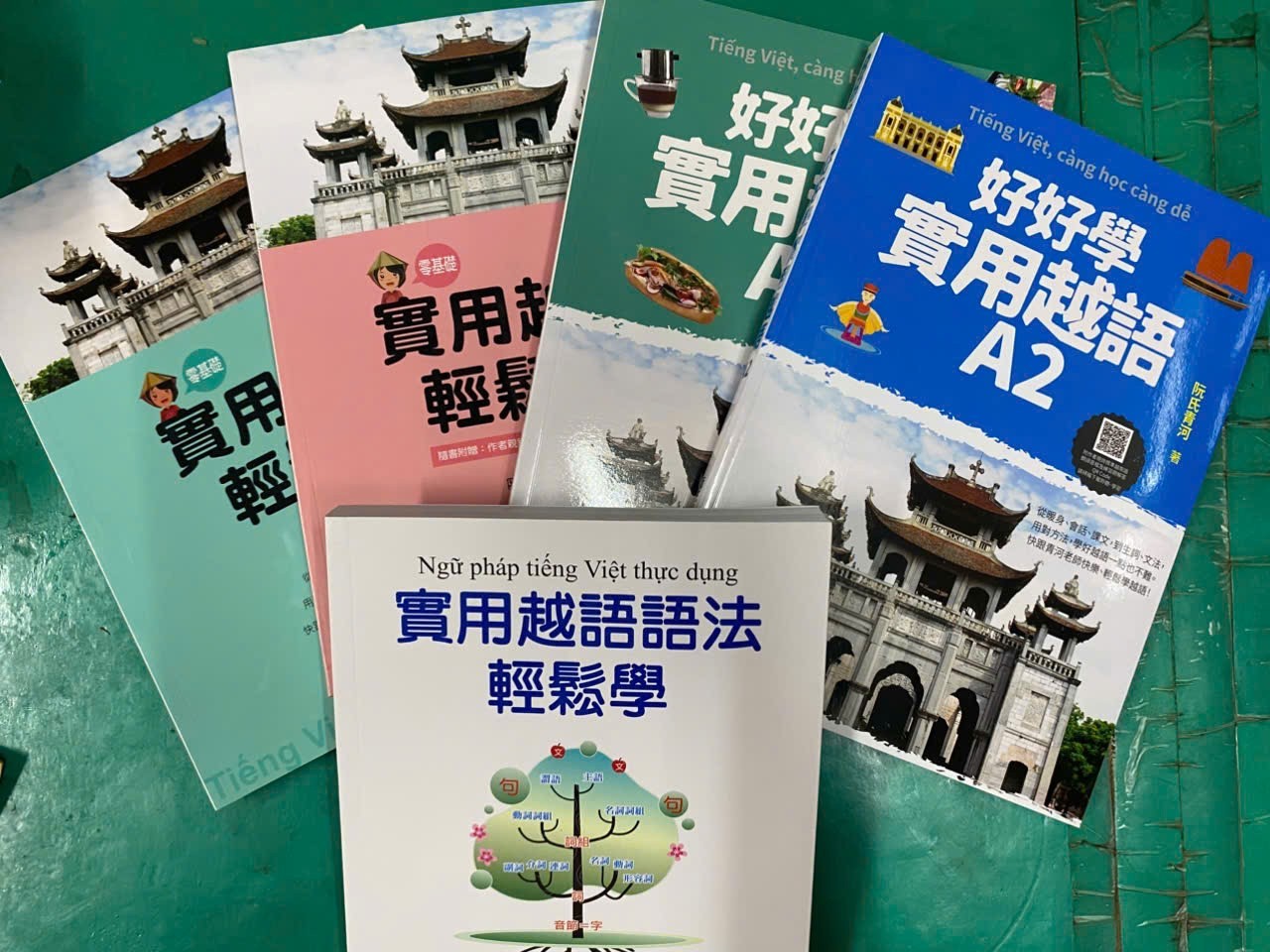 |
| The "Vietnamese Gets Easier the More You Learn" series and the book "Practical Vietnamese Grammar" were authored by Dr. Ha. |
|
The curriculum has now been adopted by numerous universities and language centers in Tainan, Kaohsiung, and Chiayi, becoming one of the most widely used references for adult learners of Vietnamese. In 2024, Ha released a revised edition with updated content, adding new topics on technology, tourism, and international exchange to bring Vietnamese closer to modern life. The new edition was designed to help learners not only use Vietnamese in daily communication but also prepare for Vietnamese proficiency tests based on the Ministry of Education’s standard framework. Currently, two levels - A1 and A2 - have been published, opening a new direction for the teaching and learning of Vietnamese in a more professional, systematic, and comprehensive manner. |
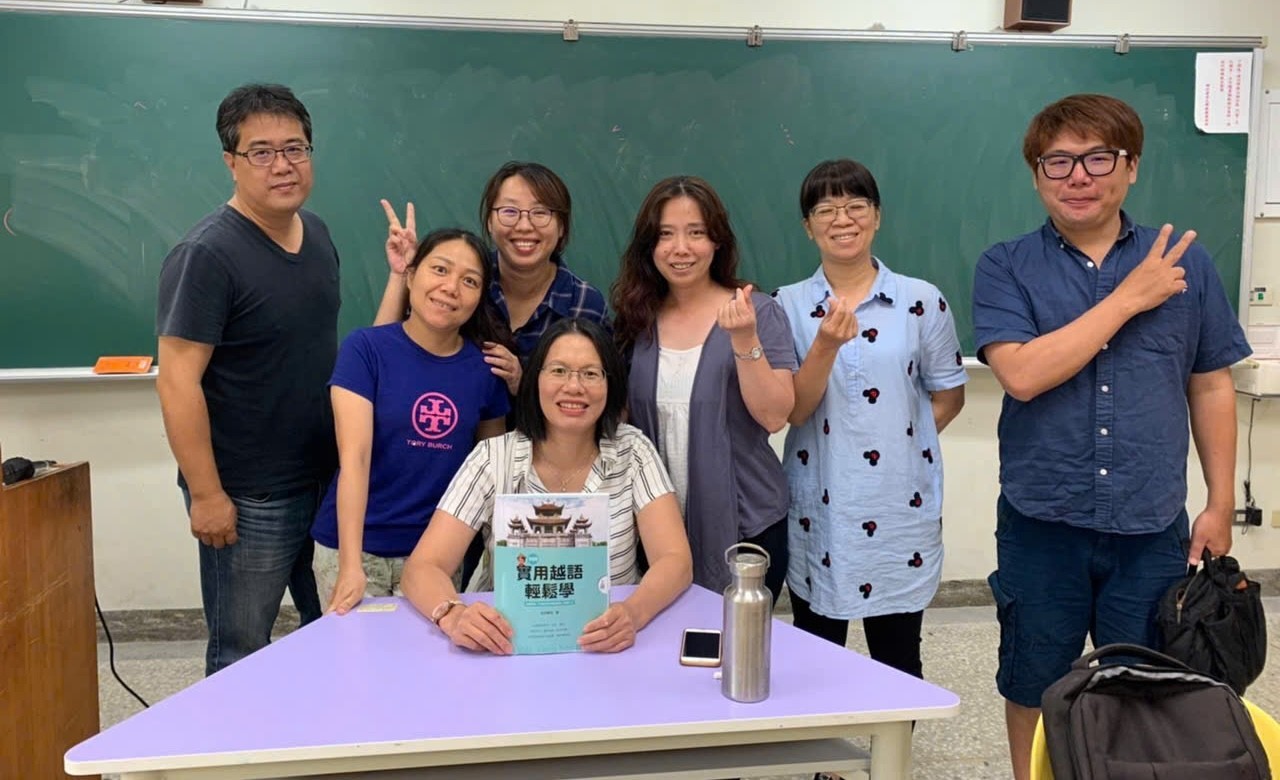 |
| The "Vietnamese Gets Easier the More You Learn" series is used by Ha in her teaching. |
|
At the same time, in 2018, she published Practical Vietnamese Grammar, which has been acclaimed by academics as a “guiding handbook” for both teachers and students. The book avoids a heavily theoretical approach, focusing instead on effective, natural, and flexible communication, precisely what foreign learners of Vietnamese need most. Moreover, Ha has also contributed to the development of the Vietnamese Proficiency Test (IVPT) program at National Cheng Kung University, modeled after international systems such as TOEFL and TOPIK, enabling learners to assess their language proficiency according to global standards. |
 |
|
For Ha, teaching a language also means teaching its culture. In her classroom, students do more than learn vocabulary or grammar, they enjoy bowls of pho, taste Vietnamese banh mi, listen to stories about the ao dai, and learn folk verses such as “Bau oi thuong lay bi cung” (“The gourd and the calabash should love each other”). She once even brought phở noodles from Vietnam herself so that her students could experience the authentic flavor of her homeland. Ta Hien Trung, a student in the Vietnamese language program at Tainan University, shared: “Dr. Ha understands exactly where Taiwanese learners struggle with pronunciation, so she often uses Taiwanese to explain. That makes it easier for us to remember. She also tells many stories about Vietnamese history and culture, which makes learning much more engaging.” |
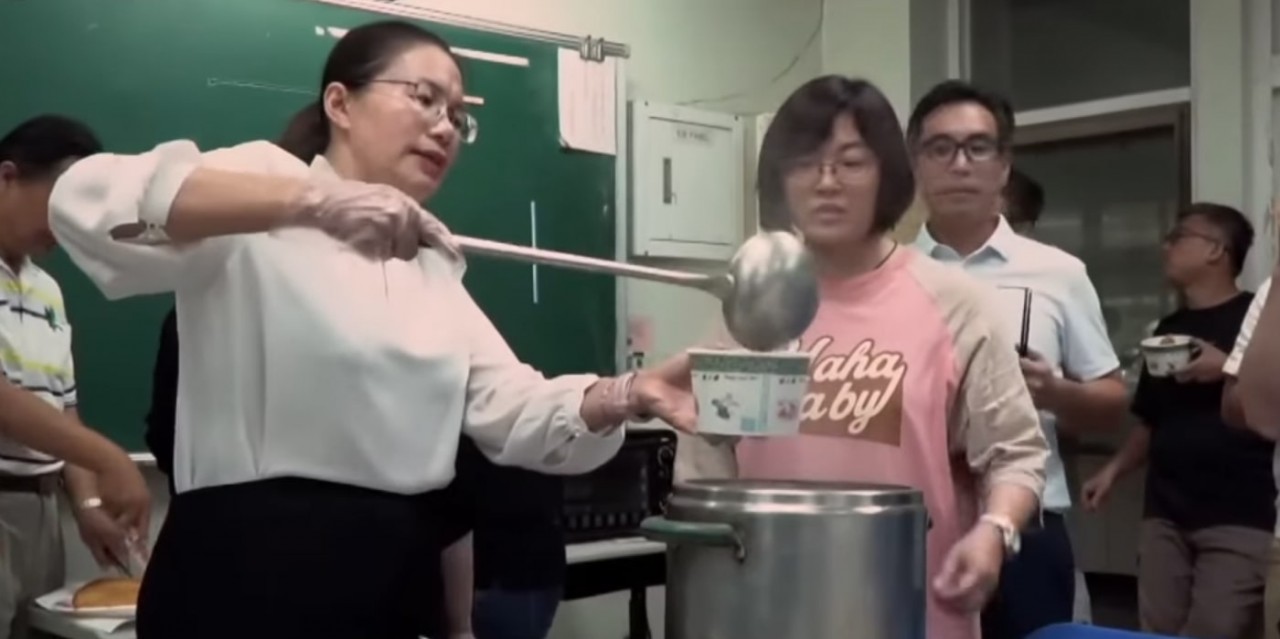 |
| Ha personally cooks pho to give her students a hands-on experience of Vietnamese cuisine and culture. |
|
Ha’s dedication has inspired many of her students not only to learn Vietnamese but also to fall in love with Vietnam - the country of the language they are exploring. Many of them, after completing her courses, have chosen Vietnam as a destination for travel, internships, or business cooperation. After nearly twenty years of living and working in Taiwan, Dr. Nguyen Thi Thanh Ha is not only a teacher of Vietnamese but also a pioneer who has laid the foundation, set the direction, and spread the values of the Vietnamese language in education. The textbooks she has helped review and compile serve not only learners but also as cultural bridges, helping Taiwanese people better understand Vietnam and its people. “I always hope learners will see that Vietnamese is not a difficult language, but a beautiful one - imbued with the breath of life and the soul of Vietnam,” Ha shared. |
|
Written by: Pham Ly Design by: Mai Anh Published on: October 30, 2025 |